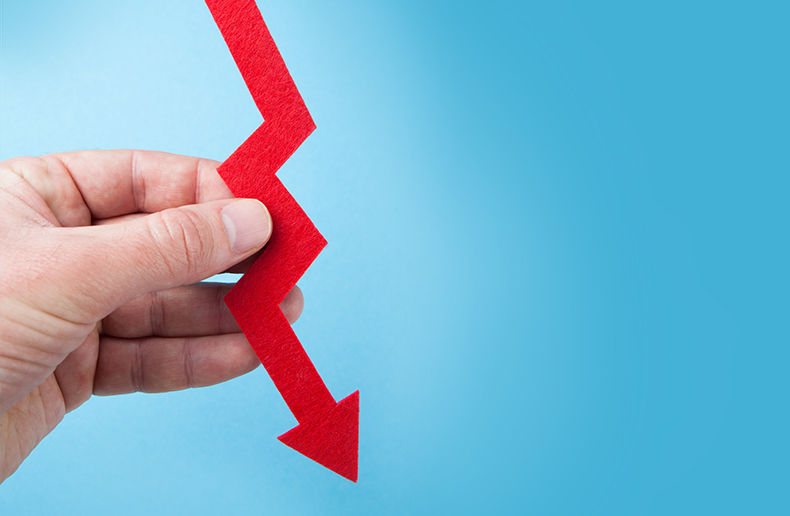After experiencing exponential growth in recent years, the environmental, social and governance (ESG) investment fund movement may be losing steam due to headwinds, according to remarks made at the Responsible Investment Association’s (RIA) Quebec ESG Symposium held on October 25 and 26. The Insurance Portal attended this virtual event.
What’s more, Morningstar observed a slowdown in this investment niche in its Q3 Sustainable Investment Landscape for Canadian Fund Investors report, released on October 25. The report mentioned that only five sustainable investment mutual funds were launched in the third quarter of 2022. No new ESG exchange-traded funds (ETFs) emerged for the second quarter in a row. "In the past, we experienced a diverse set of launches from various sustainable product providers (both mutual funds and exchange-traded funds), but this quarter was different,” comments Morningstar manager research analyst Abdulai Mohamed. At $243 million, third-quarter 2022 net sales of responsible funds plunged 85 per cent from $1.68 billion in asset flows the previous quarter, Mohamed notes.

In fact, ESG is facing issues that cannot be measured in sales, a speaker at the ESG Quebec Symposium argued. Jean-Philippe Renaut, special advisor at Aequo Shareholder Engagement Services, said that 10 years ago, the explicit integration of non-financial principles was a very small niche in the industry. The principles for responsible investment (PRI) have since become a hot topic, Renaut added.
No clear definition
The special advisor to the institutional investor services firm specializing in responsible investment deplored the lack of a precise definition of what sustainable investment is. Even Europe, a forerunner in ESG principles, is contending with this gap. “There is a lack of audit process and precise regulation to label ESG funds," Renaut argues.
He points out that by the end of 2021, Europe had “de-labelled” 1,000 funds that claimed to be ESG under its new Sustainable Finance Disclosure Regulation (SFDR). Adopted by the European Union (EU), the regulation requires asset managers and investment advisors to disclose specific information about how they address sustainability risks and key negative impacts. According to a note published on the BNP Paribas Asset Management website, the SFDR aims to channel more private investments toward environmentally sustainable financial products, while preventing greenwashing.
“Canadians should take note and ensure that their funds comply with the regulations,” Jean-Philippe Renaut adds. He explains that the SFDR requires managers selling funds in Europe to rigorously justify the impact and attributes of their products. Many manufacturers have had to redo their marketing materials, he says.
From ESG to... E
Renaut describes a headwind where many to want to drop the S and G from ESG and focus on the environment, because the impact on that component is a priority and everything else is a distraction. That wind has been escalating in recent years, he notes. “We’re also seeing a counter-movement emerge that says ESG is hurting the economy. ESG is being viewed as woke, anti-capitalist,” he explains.
Some of the criticism is understandable, Aequo’s special advisor continues. He shared “corridor talk” that a CEO of an Alberta oil company was wondering how to attract new European funds to finance his operations. “Companies are well aware that their cost of accessing capital is gradually increasing, with the regulations and investors’ requirements regarding their operations and business model.”
Jean-Philippe Renaut cautions against throwing the baby out with the bathwater. “Carbon emissions are just one small and easily measurable facet of a wide range of interrelated and more complex issues,” he says, referring to the diversity, equity, inclusion and transparency issues encompassed in the social and governance aspects of responsible investment funds.
Peak and questioning

Bouchra M’Zali is a professor of social responsibility at the École des sciences de la gestion (ESG UQAM) with a long history of working with managers on several continents. She says that 15 years ago, Poland resisted the ESG movement, which it associated with a socialist past that it preferred to leave behind. Since then, enthusiasm for the ESG movement has taken hold in the country, driven by the demands of large multinationals such as the car manufacturer Volkswagen, notes M’Zali.
“We feel that there was a peak, and that there is now a questioning,” the ESG UQAM professor continues. She mentions that multinationals subject to regulations such as the SFDR are also leading small companies in developing countries to implement workplace safety and compensation standards for the first time.
Companies worry about disparaging information appearing on social networks. M’Zali gave the example of Danone’s Moroccan subsidiary, which the public boycotted in 2018 to protest the high cost of living. Danone irked consumers by deliberately raising the price of its dairy products during Ramadan, she says. This type of rally is truly unprecedented. “Companies are now aware of the extra-financial risks they face," she says.

Réjean Nguyen, Director of Sustainable Investing at Addenda Capital, says that 10 years ago it would have been unimaginable to talk to a company about climate change or carbon footprint. “We are now having discussions with companies about the role of carbon offsets in their strategy, and about technological innovation that contributes to permanently reducing their emissions,” he says.
Perception gap
Regarding the headwinds identified by the panel moderator, Nguyen brings up the innovation cycle, which begins with euphoria. “For years we’ve been saying that artificial intelligence, cryptocurrency and blockchain would change the world, that we could abandon the banking system. I see sustainable investing following the same pattern.” He has observed a meteoric rise in the number of countries signing agreements to reduce greenhouse gases since 2017. For example, nearly 90 countries, including Canada, signed the Global Methane Pledge. This agreement, reached in fall 2021, aims to reduce methane emissions by 30 percent by 2030 compared with their 2020 levels.
Réjean Nguyen believes that the industry has now seen the limits of what responsible or sustainable investing can achieve. “The perception about its impact was that it would change or solve issues like climate change and human rights. We’re entering the disillusionment phase. Everyone realizes that responsible investing doesn’t really do that,” he explains.
Nguyen underlines two streams in responsible investment. In the first case, ESG is integrated into the fund manager’s processes. It is part of a mosaic of information that calibrates the valuation of a company, and leads to the decision to invest or not. In the second approach, ESG is seen as a product. Individual investors question whether the product in which they invest will have an impact on stakeholders, the economy and society.
“The financial community thinks of ESG as a process while John & Jane Q Public thinks of the impact when they hear about responsible investing. The headwind you see is the gap between those two perceptions,” the director of sustainable investing at Addenda Capital explains.
The economic argument
Jean-Philippe Renaut notes that the perception of responsible investment in the US is clearly divided along party lines and dictated by the main economic activities of the states. Take West Virginia, where coal is a major resource, he says. The state argues that ESG investing hurts the economy. Renaut says the word “impact” is confusing: Are we talking about the impact of ESG investments, the actual impact? And what are the risks? he asks.
Bouchra M’Zali countered that financial professionals’ and environmentalists’ discourse needs to be better aligned, because responsible investment cannot change everything. “We are not going to take coal and oil away overnight,” M’Zali says. “It is impossible to ask a company to convert all of its equipment trucks to electric power in the short term. It costs a fortune. You have to amortize it and you lose your competitiveness,” the professor explains.
You have to build in a longer time horizon, M’Zali continues. She uses the example of a producer that makes the shift to fair trade coffee production. “Initially, it will cost more because the company has to integrate criteria and change its ways of doing things.” This high initial cost is a hindrance for SMEs that want to move to another level, M’Zali believes. A dream she holds dear: Create a transition fund that would help companies overcome this barrier.
Numbers reassuring
The letters ESG are not silos, Bouchra M’Zali insists, just as the word environment does not refer solely to climate change. Nor are these concepts easily measurable. “People are reassured when they see numbers. Some try to do the same thing with environment, social and governance, which is not possible,” she says. M’Zali believes in giving the criteria time to crystallize. “Nothing has been done for years,” she notes.
When interpreting the ESG qualities of a company or fund, Bouchra M’Zali warns against a one-size-fits-all approach. “What is tolerable or good for me is not necessarily good for someone else.” The issues depend on the industry, M’Zali continues. For example, the issue of greenhouse gas emissions will not be as important for a bank as for an oil company. In contrast, the degree of protection of customers’ personal data will be crucial in a financial institution’s risk analysis.















